Arab nations betray Palestine for Israeli normalization
The so called “normalization of ties” between the UAE, Bahrain and Israel, is in fact a betrayal of their fellow Arab Muslims, the Palestinians whose lands were usurped partially by Israel in the 1940s, and once again, more completely, in 1967.
To the Islamic Republic of Iran, the security and wellbeing of Palestine is not just a security concern, rather, it is more a matter of principle since Jerusalem is considered to be sacred and hallowed ground by all followers of the Abrahamic religions.
The three Abrahamic religions trace their origins to both sons of Abraham. For Jews and Christians it is his youngest son Isaac and for Muslims, his eldest Ishmael.
Jerusalem has been kept secure by Palestinians since the dawn of the Abrahamic religions, . And now for non-Palestinian, fellow-Arabs, to just hand it over to already-occupying Zionist Israelites, is beyond insufferable. It doesn’t work for the Palestinians, it doesn’t work for Iran, and it certainly doesn’t work for a predominantly Muslim Arab middle-east or west Asia.
What are the options for Palestine?
The best solution, when something has been seized from you, would be its peaceful repossession, failing this, as the Leader of The Islamic Republic of Iran so sagaciously put it, holding a referendum in Palestine in which all parties concerned would have a say in the kind of governance they wish to have.
If this option doesn’t work there would be no other choice than war and resistance. Someone has stolen a title deed from you. If by using a peaceful language and using political means you get nothing you will have a third solution, which would be to fight for the deed. That is the solution for Palestine.
Sa’d ollah Zarei, Andishe Sajan-e Noor Strategic Studies Inst.
After WWII, Europe passed its Jewish problem on to Palestine, in effect, establishing a military base for the West and a homeland for the so-called Jews.
In order for this to come to fruition, villages were demolished and Palestinians slaughtered, driven out or fenced in, in their own homes.
Arab nations were so outraged that they fought back. They claimed they would NEVER forget. Yet several of their governments, allied with America and hence AIPAC the American Israel Public Affairs Committee, are now out to give Israel the handshake.
Why the rush for “normalization”?
With only weeks to go till the end of US President Trump’s term in office, who are they trying to please?
According to Mr. Zarei, Israel has long been recognized and dealt with by the Arab nations in question. It has just stopped being covert. In fact the advent of Israel or occupied Palestine went hand-in-hand with the Anglo-American practice of divide and rule; this is just the latest chapter.
It was the Arabs who founded Israel. It would be wrong to say that Israel was first established and then some Arabs supported it and some others opposed it. You can refer to the 1921 and 1923 documents. In those years, Israel had not even been established. The father of Saudi Arabia, King Abdul Aziz, submitted a letter saying Saudi Arabia recognized the Jews’ right to establish a state in Palestine. So the Arabs established it. But the Saudis played a trick to show that they are a leading state in defending the cause of Palestine while they had themselves established Israel.
Sa’d ollah Zarei, Andishe Sajan-e Noor Strategic Studies Inst.
Israel, by its very nature, since conception, has been divisive and the root cause of regional weakness. Iran will certainly not stand for increased Israeli presence in its immediate neighborhood. This, according to Iranian President Hassan Rouhani, would not do ANYONE in the region any good.
“The rulers of the Emirates should know they are mistaken if they think they can buy security by getting closer to the enemies of Islam and Iran,” Dr Rouhani said, warning that if they want to open the path to Israel’s presence in the region, they… will be dealt with in a different manner.
US induced fear of Iran.
The concept of divide and rule need not necessarily be geographic. Since the Islamic revolution of Iran in 1979 the severance of ties with the US, Washington has portrayed Iran to the Arabic nations in the region as a bogeyman from whom only the USA can protect them.
Now that the Americans are set to depart the region, our Arab neighbors are leaning towards Israel, whom they view as an alternative defense against Iran, while at the same time scoring Brownie Points with the US and, they hope, helping Donald Trump back into office.
Ulterior US motives.
The US has long sought to block China’s growth and influence; however, it has finite resources and cannot properly concentrate on China and the Middle East simultaneously.
What is happening now would clear the way for the US to quit the region. In other words, Israel, which has been dependent on the US, would become self-reliant. The US is creating a geographical depth for Israel and filling its financial needs in order to have sufficient time to focus on its own priorities.
The US administration cannot focus exclusively on Israel and foregoes the priorities of the American community. That is why everything is moving in the direction of US priorities.
The US administration cannot focus exclusively on Israel and foregoes the priorities of the American community. That is why everything is moving in the direction of US priorities.
Hossein Rooyvaran, Political Analyst
What would the recognition of Israel mean for Muslim Unity on Israel?
According to Khaled Qoddoomi, the Hamas Representative in Tehran, “even the Arab league’s position on the issue was very strange and, though they were never involved practically and in context with the Palestinians issue they were to abide by the so called Arab initiative by 2002. Such a deal between Bahrain, The Emirates and Israel is launching the death decision of so called Arab initiate of 2002 “.
The agreement reduces the UAE and other prospective Arab signatories to nothing more than an Israeli colony.
Now other Arab states are said to be “waiting in line to normalize relations with Israel,” while Turkey has opposed the deal. My scholarly interviewee appeared surprised to hear of some other Arab states, explaining why the likes of Kuwait can’t readily recognize Israel.
The nations whose political establishment is not essentially accountable do such things more easily. The UAE and Bahrain are among them. Oman and Qatar may also follow suit. But I don’t think Kuwait would be like them due to its parliamentary system since 1960s. The political establishment in Kuwait cannot do so because of the parliament barrier.
Hossein Rooyvaran, Political Analyst
Who is the real threat?
The people are the roots and tree-trunk that hold the resistance up. Hence non-democratic regional states fear the inspiration it may instill in their own people.
Israel is an uncomfortable fit in the region. It has both publicly threatened to attack Iran’s nuclear facilities, and opposes the nuclear deal that limits Iran’s nuclear programme; a programme that Iran has maintained is peaceful all along.
The UN nuclear watchdog, the IAEA, has confirmed Iran’s compliance 15 times. Israel, however, has an estimated 80-90 nuclear warheads and enough fissile material for an additional 200 nuclear warheads.
Israel, unlike Iran, is not a member of the Non-proliferation Treaty, NPT, and has always been most secretive regarding its nuclear activities and is believed to have developed a nuclear triad for delivering its nuclear weapons. Israel also maintains offensive biological and chemical weapons activities, according to reports.
Israeli nuclear arsenal
Israel is believed to possess an arsenal of 25-100 nuclear-capable Jericho-II and Jericho–III missiles, which are in all likelihood, road-and rail-mobile.
As for Israel’s air-based nuclear forces, again it is estimated that the country maintains 30 nuclear gravity bombs to be delivered by aircraft. And yet Israel, unwanted by its neighbors and badly-run internally, is in a precarious situation.
Trump and Netanyahu are in deep crisis today; they wanted to come up from their crises to such a deal. The second thing is that there is a strategic context; which is America has always been guaranteeing this regime since its inception and try to increase its power over the whole region. As a result, one has to think why now of all time because we all know as Dr. Zarif one said that this deal is among old allies.
Khaled Qoddoomi, Hamas Representative in Tehran
Boil, boil; toil and trouble
In recent months, Israelis have demonstrated repeatedly in protest to Prime Minister Netanyahu’s corruption. They are past caring about occupying 30% of the West Bank. They don’t want it.
61 to 75% of residents are dissatisfied with the government’s performance, according to polls. In fact Israel is in one of the worst political, economic and social situations in its 70 year history. This could have been a golden opportunity for the Arabs to secure the rights of their Palestinian brothers. But instead they are rewarding Netanyahu, something his own people refused to do.
Apart from Mr Trump’s election bid and Mr Netanyahu’s political ambitions as protests have been continuing for two months in Israel and he would need to convince people to ignore his corruption charges, the main reason for this issue is not instantaneous, rather it is a long-term issue.
Hossein Rooyvaran, Political Analyst
Khaled Qoddoomi, the Hamas Representative in Tehran, says: “It is simply a new approach to threaten the resistance movement and threaten Iran which is in the resistance idea; to besiege Iran more and more and make more pressure over Iran.”
The regional Arab states are giving up on Palestine just as the UN and some European countries have recognized the rights of the Palestinian people, as the BDS movement in the West grows rapidly. BDS stands for Boycott, Divestment, and Sanctions. It is a Palestinian-led movement to secure for Palestinians the freedom, justice and equality enjoyed by other human beings.
The UN, as well as the EU, who say that they are going to recognize the Palestinian state, after 72 years, are yet to follow through on their promise.
They had to empower the Palestinian state. They were always dealing with the so called Israeli state and because of their support of this deal, Israel today is a very advanced country; why? Because of their behavior.
Khaled Qoddoomi, Hamas Representative in Tehran
All said and done, Iran will not restrict itself in defending the country's security. In fact it sees itself responsible for the security of the region too. Iran was stranded, when Baathist Iraq imposed an 8-year war on it in the 80s. Iran practically fought a world war on own. And it has lived through the hardest ever US sanctions, to learn that indigenous weaponry is its lifeblood.
Defensive deterrence
The Iranian military doctrine, relying on defense and deterrence, proscribes dirty warfare. However, manufacturing ballistic missiles is at the core of its defences. Recently—in August-- amid heightened tensions with the US, Iran unveiled two new missiles: The “Martyr Hajj Qassem” surface-to-surface ballistic missile which has a 1,400-kilometer (870-mile) range. And the “Martyr Abu Mahdi” naval cruise missile which has a 1,000-kilometer (620-mile) range.
The missiles have been named in honor of the two commanders martyred by the US, assassinated in Baghdad International Airport, almost as the clock rang in 2020.
Iran already possessed longer-range missiles. However, these two new additions alone, have sufficient range to reach Israel and U.S. bases across West Asia, should the need arise.
In the region, a serious dispute is under way between the Resistance Front and the US. Regarding Iran-US dispute, we downed their drone, fired missiles as their military base in Ain al-Assad and they assassinated our general. Therefore, a war is under way between us. There is a conflict between us. We are powerful enough to engage in a conflict and manage our own issues. We are powerful enough to keep the US from launching any attack on us.
Sa’d ollah Zarei, Andishe Sajan-e Noor Strategic Studies Inst.
Contrary to the Zionist media propaganda, Iran is not out for blood. But it will not readily give blood either. Iran favors a peaceful solution for Palestine, having proposed holding a referendum, inclusive of all original Palestinians anywhere in the world, be they Muslim, Christian or Jewish, to vote on their fate. But that has been treated as no more than a pretty suggestion and regional states are moving to change the political map of west Asia.
Resistance more critical than ever
Iran is steadfast on strengthening the resistance in defending the Palestinian cause. But that may be harder with regional states ganging up with Israel. Or will it be harder?
A resistance front has taken shape in the region, giving rise to an equation in the region, known as deterrence. This equation is between Iran and the Zionist regime, between Lebanon and Israel and also between other member states of resistance. Now the question is whether anything special has happened after the UAE and Bahrain made peace with Israel. Nothing has happened as both were on the other side of the equation. All they did was to lay bare the relationship. Both were never on this side of the equation to have moved to the other side. From the very beginning they were on the other side. Therefore nothing special has occurred now.
Hossein Rooyvaran, Political Analyst
Some regional states may be siding with Israel, even handing over a Muslim Arab region to a Zionist Jewish state. But they are wary of signing on to it. Perhaps Iran’s Islamic revolution following an Islamic awakening by the Palestinian issue, has served as a warning to them. They wouldn’t want their own people further inspired.
The puppet-masters
Although the regional master is Saudi Arabia, the global strings are pulled by America.
Saudi Arabia is doing everything; but it doesn’t come on the scene because of the legitimacy of the royal family within Saudi Arabia. This is very important for them but not because of Islam; or Palestine. In Saudi Arabia the main pillar of kingdom is the religious seminary or framework and the royal family itself. I don’t think they will ever dare to open an official relationship but they will do every dirty job.
Khaled Qoddoomi, Hamas Representative in Tehran
Iran voted against the UN Partition Plan for Palestine in 1947, and, after the establishment of Israel, Iran opposed its acceptance as a member state into the organization, the UN. Nonetheless, Iran became the second Muslim-majority country (after Turkey) to give Israel de facto recognition. That was in 1950, it was kept quiet. BUT the truth has a way of coming out.
The truth shall set you free
A decade later an abrupt question rattled a careful press-conference with the then King Mohammad Reza Shah, Pahlavi. “Is it true that Iran has recognized Israel?”, asked a personality called Abdolrahman of the Kayhan Daily. It took the Shah a while to respond to the Yes/No question. He finally said: Iran has long recognized Israel as a de Facto state. That is nothing new; many Muslim countries such as Turkey have done the same.
At the time, in the 1950s and 60s, Iran felt threatened by the spread of Soviet-sponsored pan-Arab nationalism, which boycotted the occupiers of Jerusalem/Palestine with nationalist slogans.
With the Cold War between the US and Soviet Union in full swing at the time, Iran was an important ally to the USA.
Oil rich Iran having control of access to the Persian Gulf and friendship with the US, and as a consequence, aligned with Tel Aviv. From Israel’s viewpoint, Iran fit into the “Periphery Doctrine”, by which Israel tried to cultivate relations with the non-Arab enemies of its enemies.
We have two perspectives about regional developments. One dates from before the Islamic Revolution and the other one belongs to post-revolution. Before the Islamic Revolution, the entire region was in US hands. Furthermore, the entire world – Russia, the UN, Europe, the US and their satellite states – were all under the Zionist influence. They all reiterated that Israel had to be established on the holy land and be a strain on Muslims in that area.
Sa’d ollah Zarei, Andishe Sajan-e Noor Strategic Studies Inst.
But Iran’s Muslim and Secular forces were at odds over the Palestinian issue, as were the people and government. When the country erupted in 1979, and Ayatollah Khomeini returned from exile in France to take the reins, Iran joined the Arab Axis in fighting Israel. He returned on February 1, 1979, and on February 18 he severed relations with Israel.
Question is that what is the benefit has been gained by the nations, I am not saying Palestinians, the nations whose government have normalized relations with Israel. Nothing. Look at the economic and political situation of Egypt or Jordan. It is more decorated than before.
Khaled Qoddoomi, Hamas Representative in Tehran
VIDEO | Press TV's news headlines
Report: Epstein account remained active after death, lists Israeli ex-military figure among contacts
VIDEO | Choosing to stay: Palestinian-Americans building life at home
FM questions ‘narrative’ pushed by Israeli-American Trump donor’s outlet ahead of Netanyahu visit
US lawmaker blasts attorney general for ‘lying under oath’ over handling of Epstein probe
Iran received no concrete US proposal in Oman talks: Security chief
Nouri al-Maliki defends Hashd al-Shaabi as inseparable part of Iraqi security system
British PM Keir Starmer faces calls to resign


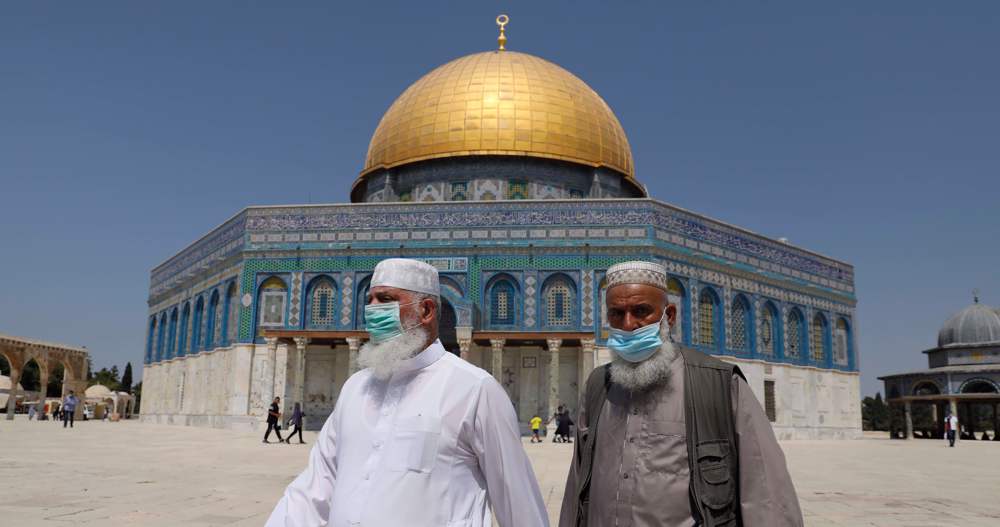










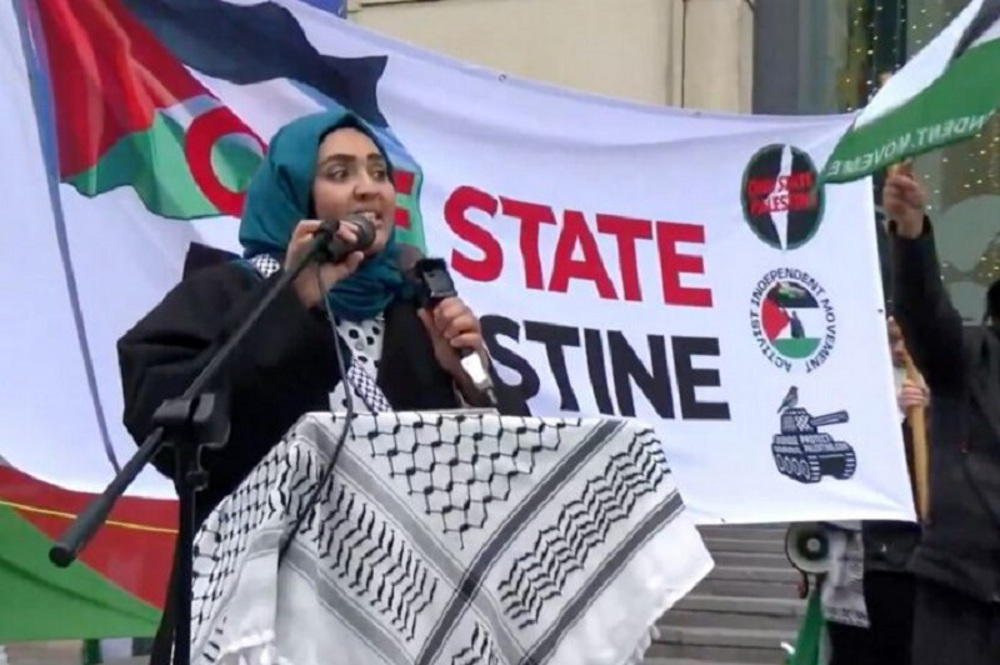




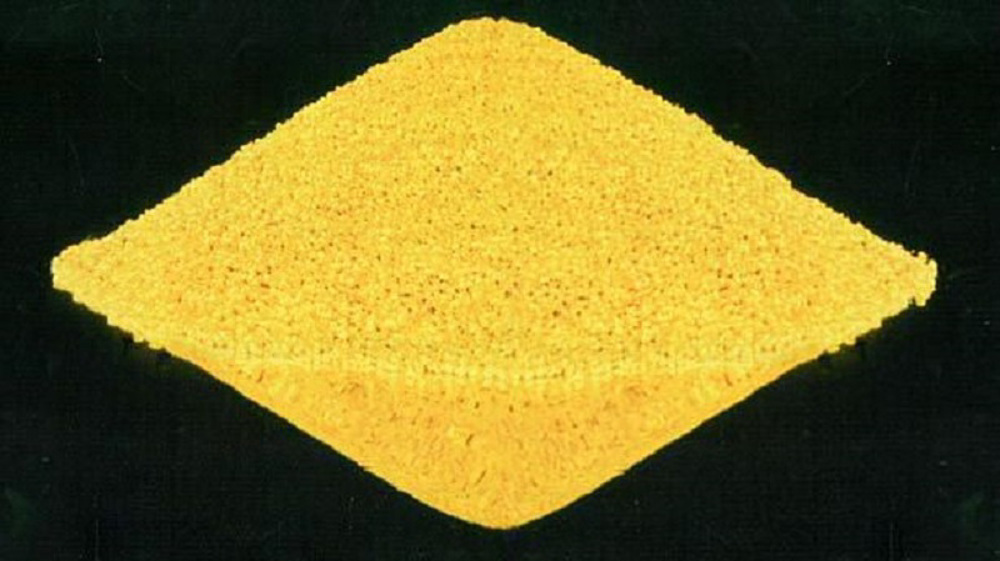
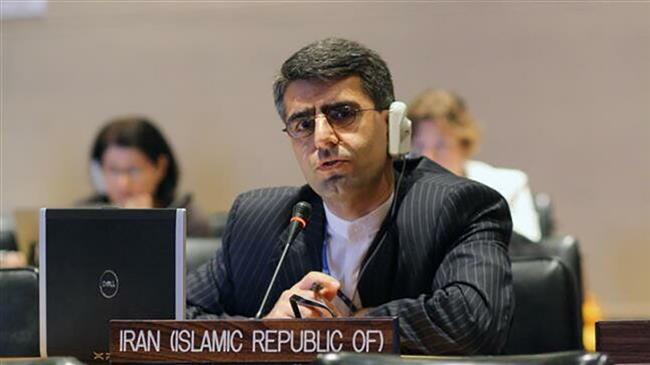
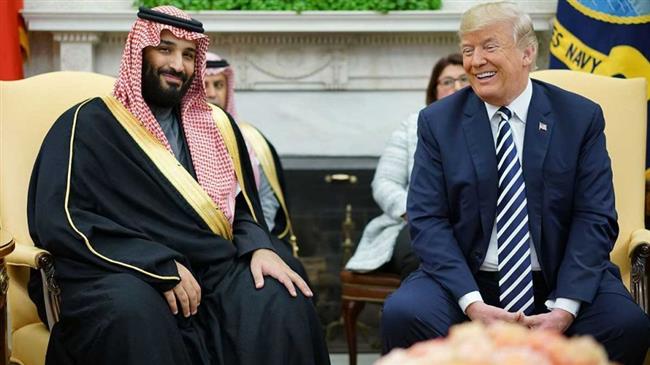
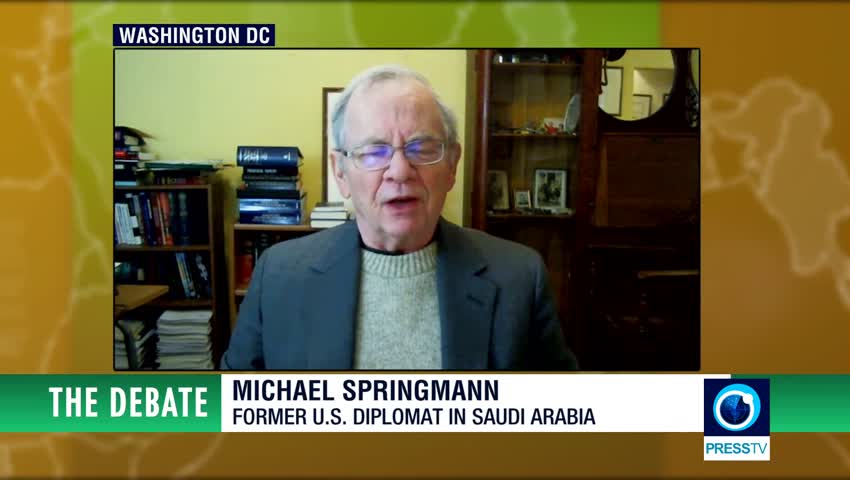
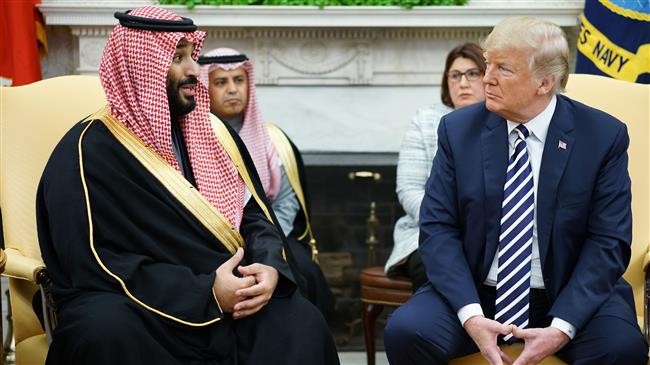
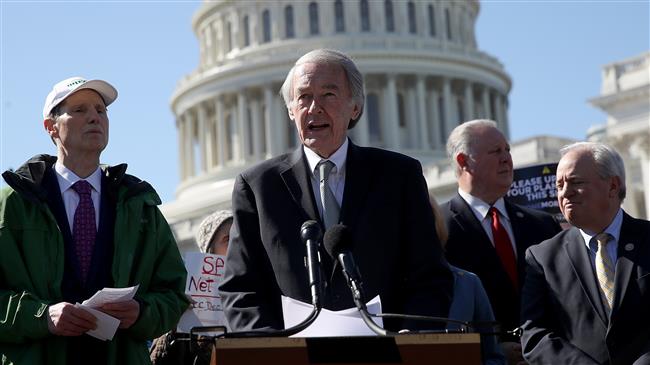
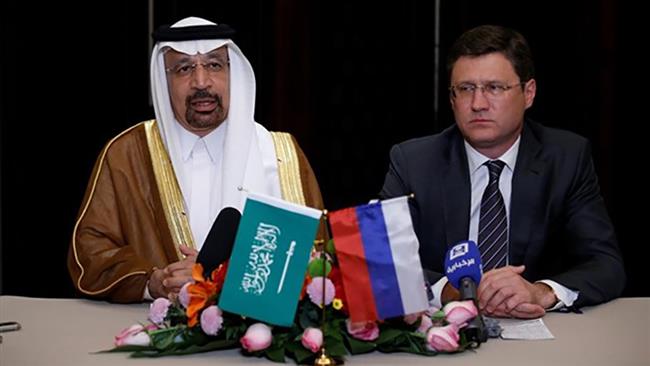

 This makes it easy to access the Press TV website
This makes it easy to access the Press TV website